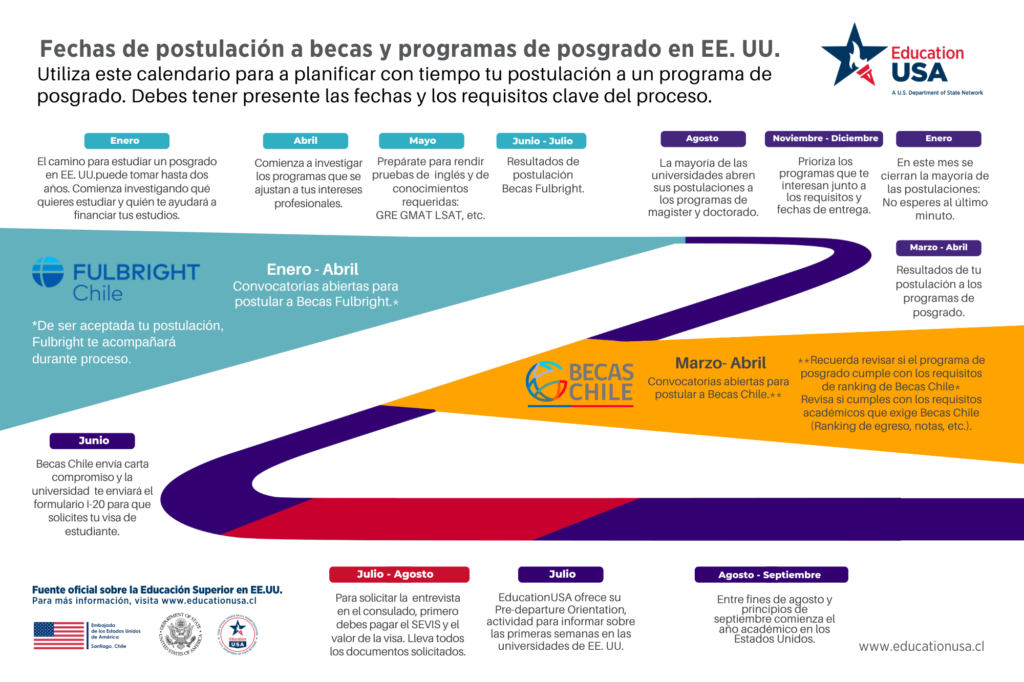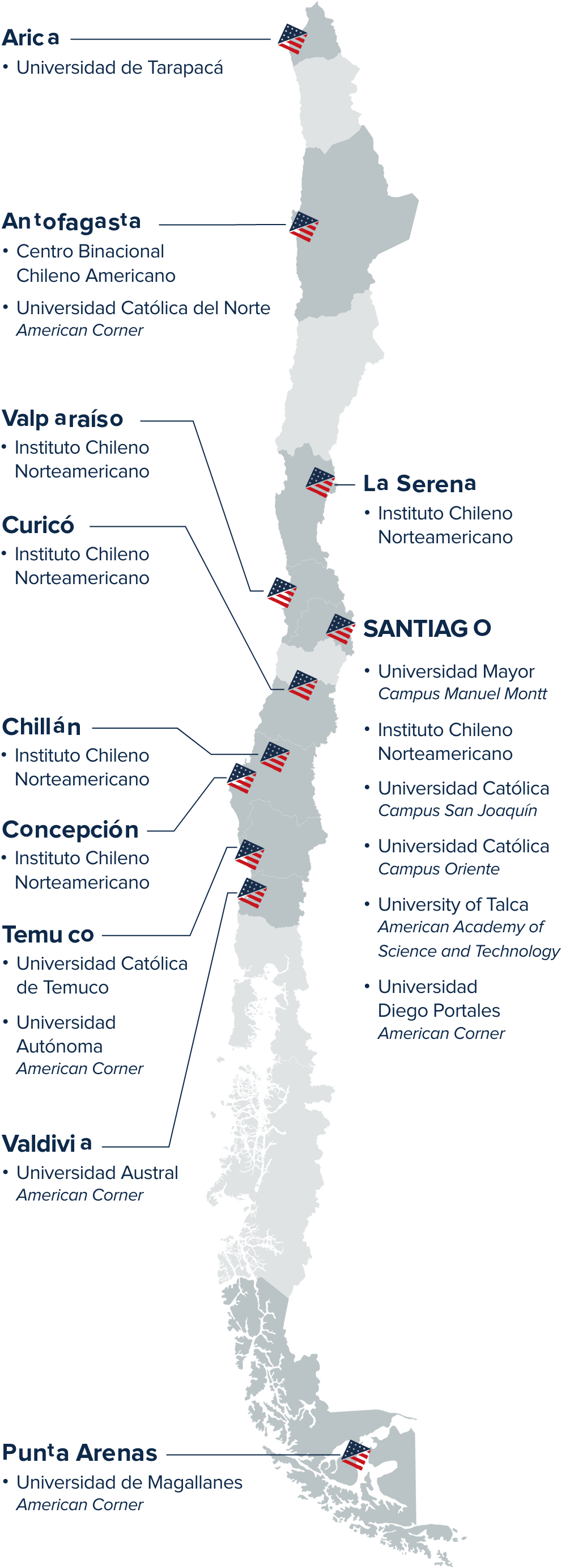Are you planning to study a Master’s or Doctorate in the United States? We can help you!

There are more than 1,000 colleges and universities in the United States that offer graduate studies. Therefore, make sure you have enough time to do a thorough research on the universities and graduate programs that match your interests. We recommend starting your search at least 12 to 18 months before you begin your application.
The two main graduate degrees in the United States are master’s and doctoral degrees. Both degrees involve a combination of research and coursework. Graduate education is characterized by in-depth training and specialized instruction.
This is a postgraduate specialization in your professional area or in an academic field of your interest. It is designed to deepen your knowledge and provide you with tools that will strengthen your professional projection, in addition to giving you skills to qualify for executive level positions.
It requires one to two years of additional study after obtaining a Bachelor’s degree in the United States, or a bachelor’s degree in Chile. It involves the development of skills that enable students to succeed in a particular job or industry.



*Optional Practical Training (OPT) is temporary employment in the major area of study. Students may apply for up to 12 months of OPT employment authorization prior to completing their academic studies and/or after completing their studies.

Each graduate program has specific requirements. However, some of these are usually the minimum required to apply. Here are some of the most common requirements for applications to graduate programs in the United States:
Studying a graduate degree, whether it is a master’s or PhD, in the United States is an important economic decision. Not only should you consider the cost of tuition, but also the cost of accommodation, food, transportation, application fees, visa and round-trip airfare. Also, you should consider whether you want to study with your family.
U.S. universities may offer some financial aid to international students. However, these are few and competitive.
That is why we provide you with two types of financial aid for Chilean students who wish to study a graduate degree in the United States:



When you are in the process of searching for a graduate program in the United States, you should keep in mind what your individual priorities are to find the program that best suits you. These may change over time, but they will help guide your search. We invite you to ask yourself the following questions:
Why do I want to study a master’s degree?
Why do I want to study in the United States?
What are my short and long term goals?
What professional area am I passionate about?
Is this the right step to specialize in my professional career?
Where do I imagine myself to be as a professional in the future?
What would be my ideal job and what do I need to learn to get it?
Checking these pages may help you* narrow down your options and find the ideal program for you:
*The information you will get from these search engines may not be exactly what you need, it is just a reference.
The Doctor of Philosophy degree, commonly abbreviated as PhD, is the highest degree awarded by academic institutions. PhD is an abbreviation of the Latin term (Ph)ilosophiae (D)octor. Traditionally, the term “philosophy” refers not to the subject but to its original Greek meaning, which roughly translates as “lover of wisdom”.
This degree qualifies you to become an academic in your chosen field or to work in a specialized research position in your field. The duration of the degree is approximately three to seven years, although some universities give you the possibility of completing it in ten years, depending on the difficulties that the students present.



PhD programs start at the end of August or in the first days of September and include four distinctive stages that mix study and research:
Each graduate program has specific requirements. However, some of these are usually the minimum required to apply. Here are some of the most common requirements for applications to graduate programs in the United States:
Studying a graduate degree, whether it is a master’s or PhD, in the United States is an important economic decision. Not only should you consider the cost of tuition, but also the cost of accommodation, food, transportation, application fees, visa and round-trip airfare. Also, you should consider whether you want to study with your family.
U.S. universities may offer some financial aid to international students. However, these are few and competitive.
That is why we provide you with two types of financial aid for Chilean students who wish to study a graduate degree in the United States:


When you are in the process of looking for a graduate program in the United States, you should keep in mind what your individual priorities are to find the program that best suits you. These may change over time, but they will help guide your search. That is why we invite you to ask yourself the following questions:
Checking these pages could help you* reduce your options in the different PhDs in the United States:
*The information you will get from these search tools may not be exactly what you need, it is just a reference.
If you have any further questions about the application, you can write to us and we will help you free of charge:
EducationUSA Advising Centers are in partner institutions, including binational cultural centers and local universities.
These centers share a common goal: assisting students and professionals in accessing U.S. higher education opportunities. EducationUSA advisers staff the centers, many of whom have first-hand experience studying in the United States

Our Offices
For your Interest
Follow Us



To provide the best experiences, we use technologies like cookies to store and/or access device information. Consenting to these technologies will allow us to process data such as browsing behavior or unique IDs on this site. Not consenting or withdrawing consent, may adversely affect certain features and functions.
1. American University Washington College of Law
2. Berkeley Law
3. Boston University School of Law
4. Columbia Law School
5. Duke University School of Law
6. Emory University School of Law
7. Florida State University
8. George Washington University Law School
9. Georgetown University Law
10. Georgia State University College of Law
11. Indiana University Maurer School of Law
12. Indiana University Robert H McKinney School of Law
13. LMU Loyola Law School, Los Angeles
14. Loyola Chicago
15. University of the Pacific, McGeorge School of Law,
16. New York University School of Law
17. Northeastern University School of Law
18. Northwestern Pritzker Law
19. Saint Louis University
20. SMU Dedman School of Law
21. St. John’s University
22. Stetson University College of Law
23. Suffolk University Law School
24. Syracuse University
25. Tufts University – The Fletcher School
26. Tulane Law School
27. UC Davis School of Law
28. UC Hastings Law
29. UCLA School of Law
30. University of Chicago Law School
31. University of Colorado Law School
32. University of Connecticut
33. University of Georgia School of Law
34. University of Miami School of Law
35. University of Michigan Law School
36. University of Minnesota Law School
37. University of Nevada- Las Vegas, William S. Boyd School of Law
38. University of New Hampshire Franklin Pierce School of Law
39. University of Pennsylvania Carey Law School
40. University of San Diego School of Law
41. University Of San Francisco
42. University of Texas School of Law
43. University of Virginia UVA
44. University of Wisconsin Law School
45. Vanderbilt Law School
46. Wake Forest University School of Law